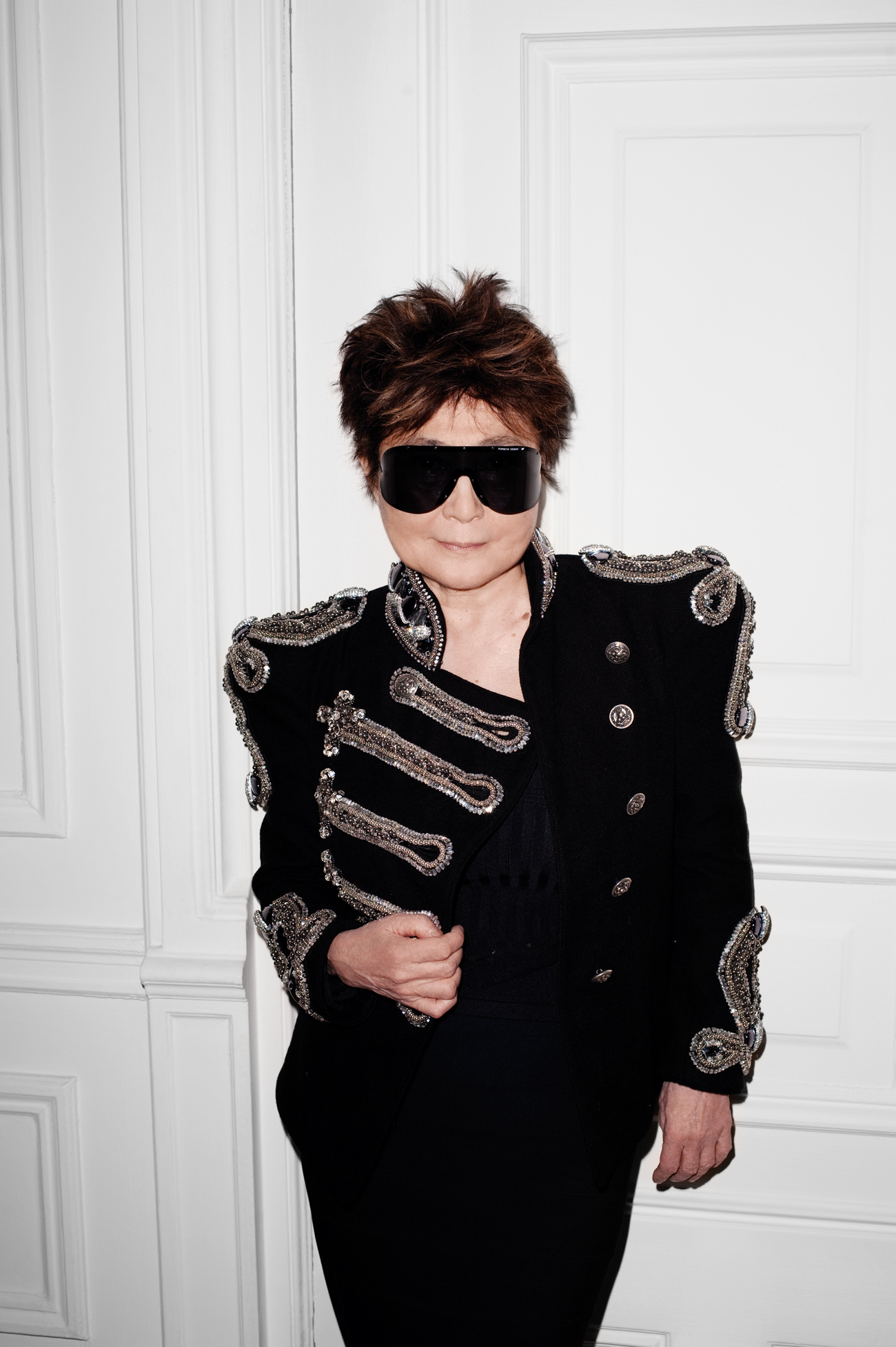Purple Magazine
— F/W 2009 issue 12
Yoko Ono
 Crystal embellished canvas jacket BALMAIN, black ribbed knit dress AZZEDINE ALAIA and black sunglasses PORSE DESIGN
Crystal embellished canvas jacket BALMAIN, black ribbed knit dress AZZEDINE ALAIA and black sunglasses PORSE DESIGN
portraits by TERRY RICHARDSON
interview by OLIVIER ZAHM
YOKO ONO is one of the most important performance and conceptual artists of the past 50 years. But lest we forget, she’s also been an influential force in the music world, both before and after her life with John Lennon. Her new album, Don’t Stop Me! invokes the best of Plastic Ono Band’s controlled noise and brillant improvisations, as it channels the coolest of “art-core” Japanese rock sensibilities. Her son, Sean Lennon, produced the sessions for what he described as “a deluge of new songs … 16 songs recorded in six days.” He also played on the album, as did the Japanese musicians, Yuka Honda from Cibo Matto and Keigo “Cornelius” Oyamada, and a group of Manhattan musicians….